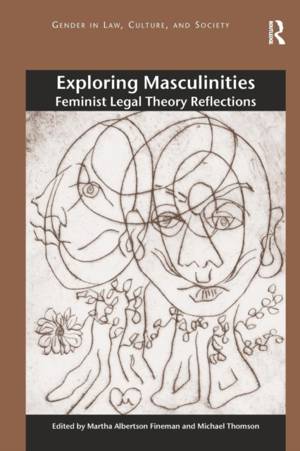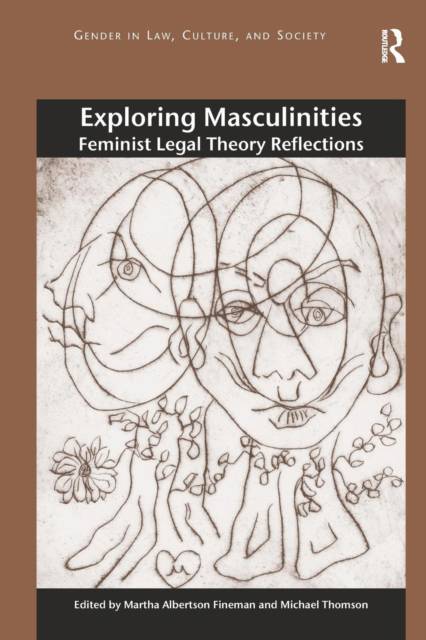
- Afhalen na 1 uur in een winkel met voorraad
- Gratis thuislevering in België vanaf € 30
- Ruim aanbod met 7 miljoen producten
- Afhalen na 1 uur in een winkel met voorraad
- Gratis thuislevering in België vanaf € 30
- Ruim aanbod met 7 miljoen producten
Zoeken
Exploring Masculinities
Feminist Legal Theory Reflections. Edited by Martha Albertson Fineman, Michael Thomson
€ 106,95
+ 213 punten
Omschrijving
While masculinities theory has had much to say on relationships of subordination, few feminist legal scholars have examined the implications of masculinities theory for feminist legal theory. This volume investigates the ways in which emerging masculinities theory in law could inform feminist legal theory in particular and law in general. As many of the chapters in this collection illustrate, law is constantly in a dynamic interaction with masculinities: it has both influenced existing masculinities and has been influenced by those masculinities. The contributions focus feminist and critical theoretical attention on masculinities and consider the implications of masculinities theory for law and legal theory. The book sets out the theoretical trajectory of masculinities studies as a field and its application in law and uses insights from a masculinities approach to study socio-political construction of gender identities in specific settings. It also explores how understanding historical construction of gender identities can inform more effective public policy and activism. Written by leading experts in the area, the book poses important questions about the development of the relationship between feminisms and masculinities theory and will be essential reading for those working in law and gender and related areas.
Specificaties
Betrokkenen
- Uitgeverij:
Inhoud
- Aantal bladzijden:
- 414
- Taal:
- Engels
- Reeks:
Eigenschappen
- Productcode (EAN):
- 9781472415127
- Verschijningsdatum:
- 21/11/2013
- Uitvoering:
- Paperback
- Formaat:
- Trade paperback (VS)
- Afmetingen:
- 156 mm x 234 mm
- Gewicht:
- 580 g

Alleen bij Standaard Boekhandel
+ 213 punten op je klantenkaart van Standaard Boekhandel
Beoordelingen
We publiceren alleen reviews die voldoen aan de voorwaarden voor reviews. Bekijk onze voorwaarden voor reviews.










